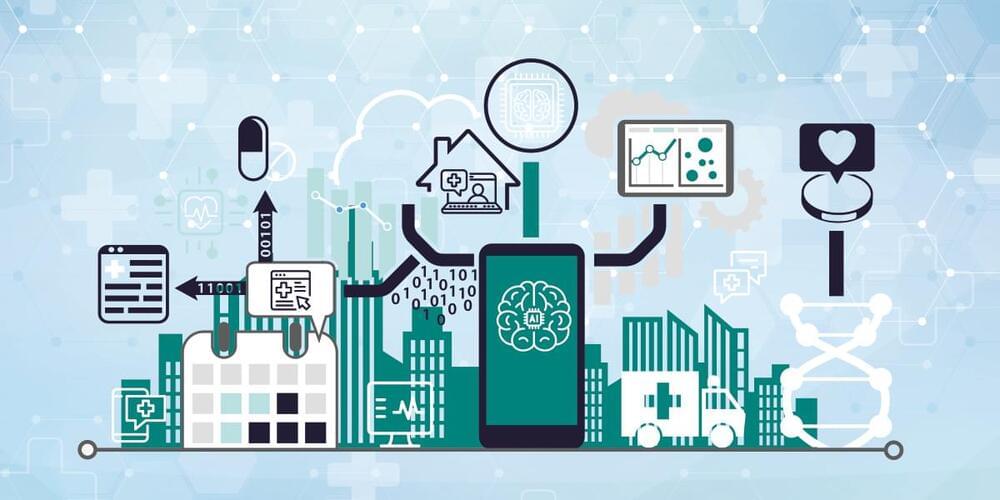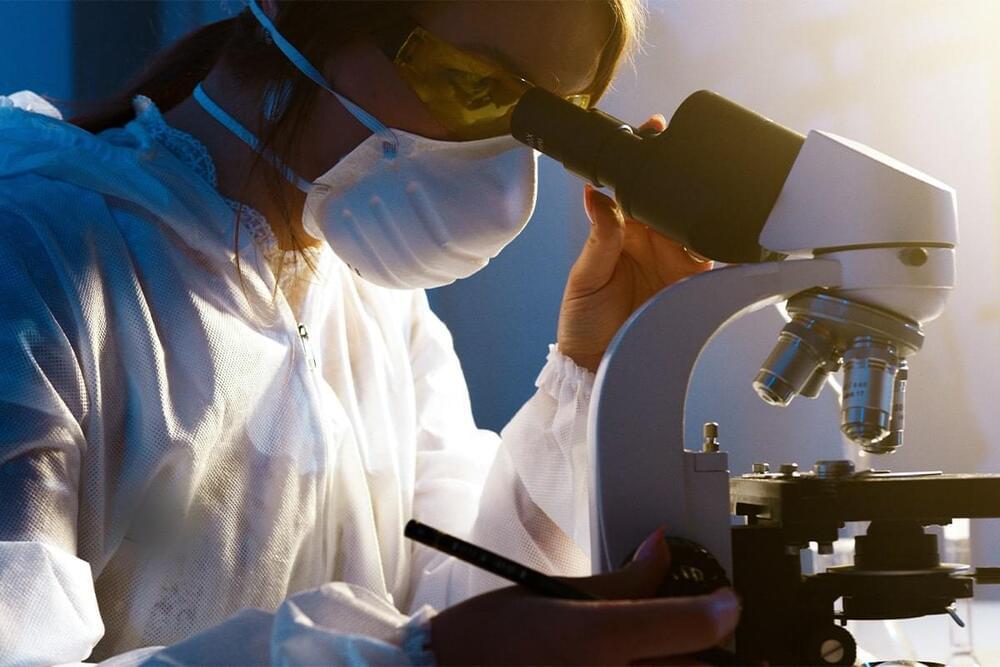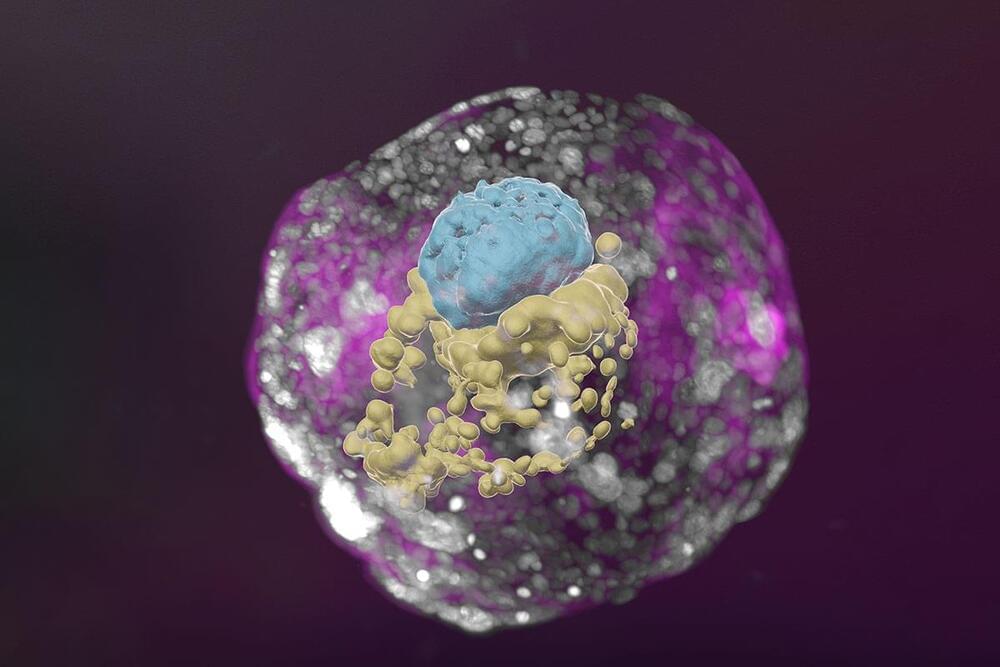Today’s retailers are faced with a clear opportunity for transformation. Consumer expectations are constantly evolving, challenging retailers to keep pace. A blend of online and in-person shopping forged during the pandemic persists, forcing retailers to deliver a highly personalized omnichannel experience. And retailers’ values are becoming as important to consumers as their products and services.
Category: biotech/medical – Page 666
The pharmaceutical industry operates under one of the highest failure rates of any business sector. The success rate for drug candidates entering capital Phase 1 trials—the earliest type of clinical testing, which can take 6 to 7 years —is anywhere between 9% and 12%, depending on the year, with costs to bring a drug from discovery to market ranging from $1.5 billion to $2.5 billion, according to Science.
The United States government said today that a multinational law enforcement operation has destroyed Qakbot, also known as QBot, an infamous botnet and malware loader that was responsible for losses that amounted to hundreds of millions of dollars all over the globe, and that they have confiscated more than $8.6 million in illegal cryptocurrencies.
During a news conference held on Tuesday to announce the takedown of the botnet, United States Attorney Martin Estrada referred to the investigation as “the most significant technological and financial operation ever led by the Department of Justice against a botnet.” Duck Hunt was headed by the FBI. For one thing, the federal government developed some software that, when installed on computers that were infected with Qbot, would make the virus useless.
Law enforcement agencies in the United States and other countries have worked together over the last three days to confiscate 52 servers that were being used to sustain the QBot network. With assistance from France, Germany, the Netherlands, the United Kingdom, Romania, and Latvia, these agencies were successful in “preventing Qakbot from resurrecting to cause further additional harm,” as stated in the report.
While other therapeutics have helped people and other animals avoid organ rejection, this one appears to trigger fewer dangerous side effects.
“Preserve health, prevent disease, prolong healthspan,” begins the mission statement of the Kitalys Institute. Lofty goals indeed from the not-for-profit organisation behind the annual Targeting Metabesity conference and a range of initiatives to translate longevity science into genuine public health gains.
Longevity. Technology: The vast majority of companies developing therapeutics in the longevity field are adopting strategies that involve targeting specific indications rather than aging itself. And well they might, because there is currently no precedent for drugs targeting aging at regulatory bodies like the FDA. Kitalys wants to change that, and we caught up with the institute’s founder Dr Alexander “Zan” Fleming to find out more.
An endocrinologist by training, Fleming is well qualified to take on the regulators. He spent more than a decade at the FDA, where he led the medical reviews that resulted in approval of drugs including metformin, as well as the first statin, insulin analogue and PPAR agonist.
For now, cyborgs exist only in fiction, but the concept is becoming more plausible as science progresses. And now, researchers are reporting in ACS’ Nano Letters that they have developed a proof-of-concept technique to “tattoo” living cells and tissues with flexible arrays of gold nanodots and nanowires. With further refinement, this method could eventually be used to integrate smart devices with living tissue for biomedical applications, such as bionics and biosensing.
Advances in electronics have enabled manufacturers to make integrated circuits and sensors with nanoscale resolution. More recently, laser printing and other techniques have made it possible to assemble flexible devices that can mold to curved surfaces. But these processes often use harsh chemicals, high temperatures or pressure extremes that are incompatible with living cells. Other methods are too slow or have poor spatial resolution. To avoid these drawbacks, David Gracias, Luo Gu and colleagues wanted to develop a nontoxic, high-resolution, lithographic method to attach nanomaterials to living tissue and cells.
The team used nanoimprint lithography to print a pattern of nanoscale gold lines or dots on a polymer-coated silicon wafer. The polymer was then dissolved to free the gold nanoarray so it could be transferred to a thin piece of glass. Next, the gold was functionalized with cysteamine and covered with a hydrogel layer, which, when peeled away, removed the array from the glass. The patterned side of this flexible array/hydrogel layer was coated with gelatin and attached to individual live fibroblast cells. In the final step, the hydrogel was degraded to expose the gold pattern on the surface of the cells. The researchers used similar techniques to apply gold nanoarrays to sheets of fibroblasts or to rat brains. Experiments showed that the arrays were biocompatible and could guide cell orientation and migration.
A research team headed by Professor Jacob Hanna at the Weizmann Institute of Science has created complete models of human embryos from stem cells cultured in the lab – and managed to grow them outside the uterus up to day 14. As reported today in Nature, these synthetic embryo models had all the structures and compartments characteristic of this stage, including the placenta, yolk sac, chorionic sac and other external tissues that ensure the models’ dynamic and adequate growth.
Longevity. Technology: Cellular aggregates derived from human stem cells in previous studies could not be considered genuinely accurate human embryo models, because they lacked nearly all the defining hallmarks of a post-implantation embryo. In particular, they failed to contain several cell types that are essential to the embryo’s development, such as those that form the placenta and the chorionic sac. In addition, they did not have the structural organization characteristic of the embryo and revealed no dynamic ability to progress to the next developmental stage.
Given their authentic complexity, the human embryo models obtained by Hanna’s group may not only provide an unprecedented opportunity to shed new light on the embryo’s mysterious beginnings, but open the door to new technologies for growing transplant tissues and organs.
Weathered or unhealthy skin is emerging as a major risk factor for almost every single age-related disease, from Parkinson’s to type 2 diabetes.
Andreessen Horowitz General Partner Vijay Pande, who oversees the firm’s health and bio fund, joins Bloomberg’s Ed Ludlow to discuss his AI strategy, and how generative AI can help safely engineer medicines at scale, support doctors and patients, and drive greater efficiency and better outcomes.
——-
Like this video? Subscribe to Bloomberg Technology on YouTube:
https://www.youtube.com/channel/UCrM7B7SL_g1edFOnmj-SDKg.
Watch the latest full episodes of “Bloomberg Technology” with Caroline Hyde and Ed Ludlow here: https://tinyurl.com/ycyevxda.
Get the latest in tech from Silicon Valley and around the world here:
https://www.bloomberg.com/technology.
Connect with us on… Twitter: https://twitter.com/technology Facebook: https://www.facebook.com/BloombergTec… https://www.instagram.com/bloombergbu…
Twitter: https://twitter.com/technology.
Facebook: https://www.facebook.com/BloombergTechnology.
Instagram: https://www.instagram.com/bloombergbusiness/








